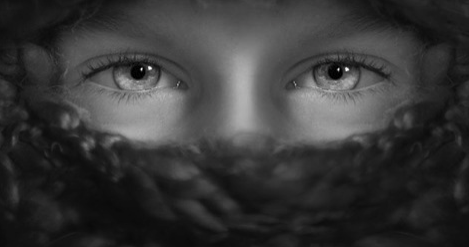
The Profound Impact of Growing Up With Domestic Violence
In this article in Psychology Today, Licensed Marriage and Family Therapist Blake Griffin Edwards paints a vivid picture of how domestic violence impacts the “unintended victims” – the children in these homes. He cites many well-documented findings regarding the short- and long-term ramifications for children who witness violence between their caregivers in their home, as well as the mitigating factors that could lessen the damage inflicted.
Among the findings Edwards points to is a report from the Centers for Disease Control and Prevention, which reveals that in homes where children experience Childhood Domestic Violence (CDV), there is a 45% to 60% chance of co-occurring child abuse, which is a rate 15x higher than the national average. In addition, his article refutes commonly held beliefs in these households that children are for the most part unaware of the violence and are therefore shielded from its negative impact. The CDC report indicates that children witness 68%-80% of domestic assaults.
The aftermath of domestic violence often leaves caregivers drained and distracted, which makes them emotionally and often physically unavailable or unresponsive to children at a volatile time in their lives when human contact, nurturing, comfort, and reinforcement are essential to their positive development as humans. In addition, the abusive parent is often more irritable, less involved in raising the child, more prone to applying excessive or unpredictable forms of punishment, and less able to differentiate between their children’s needs and their own. Both parents run the danger of not being emotionally attuned to their children’s experience and feeling around it, as they’re preoccupied with the unfolding crises in the household, which makes their ability to adequately recognize and gauge their children’s levels of distress poor. And this is a key factor in fostering a child’s resiliency in such homes.
Mounting research has shown that children who face CDV are at an increased risk for a broad range of challenges – from anger and aggression, to fear, low self-esteem and social withdrawal, to poor social skills and a myriad of problems in relationships, to violence behavior, to substance abuse…and the list goes on.
Childhood Domestic Violence is the Unknown ACE
Numerous studies have validated that CDV on its own is sufficiently serious and severe to induce PTSD in children. Appropriately, the Adverse Childhood Experiences (ACE) study led by the Centers for Disease Control and Prevention – one of the most sweeping studies to date to gauge the impact of major childhood adversities on a life long-term – classified experiencing DV in one’s childhood home as one of 10 major adverse childhood experiences considered to be defining in a person’s life.
The scope and frequency are astounding, with 1 in 5 children impacted by CDV today. And the impact is too immense to ignore. Individually and as a society, we cannot afford to turn a blind eye. Here are 3 simple things you can do today if you think you grew up with CDV or you care about someone impacted:
- BROWSE CDV.ORG – Our website is a clearinghouse on all things CDV-related and a place for education, empowerment, and unprecedented resources that can help you turn your life around or help someone you care about who struggles with the unwanted consequences of CDV do the same.
- TAKE COURAGE UNLEASHED – This 45-day conditioning program was specifically built by experts for anyone who grew up living with domestic violence and still exercises negative, self-destructive, or detrimental thoughts, feelings, and habits in everyday life that their lives. It can help you replace the bad habits that do not serve you with new healthy, positive ones that can change your life.
- TAKE CHANGE A LIFE – Our free 40-minute online program can teach you in simple steps how to effectively intervene with and become THE ONE for a child facing CDV, to help foster their resiliency and help put them on a path to their full potential
You can read the full article, “Alarming Effects of Children’s Exposure to Domestic Violence Children exposed to domestic violence may experience a range of difficulties,” by Blake Griffin Edwards LMF, published in Psychology Today on Feb 26, 2019, at: https://www.psychologytoday.com/us/blog/progress-notes/201902/alarming-effects-childrens-exposure-domestic-violence
